- Home
- slideshows
- miscellaneous
- Inside the creepy and impressive startup funded by the Chinese government that is developing AI that can recognize anyone, anywhere
Inside the creepy and impressive startup funded by the Chinese government that is developing AI that can recognize anyone, anywhere
Founded in 2011 by three Tsinghua University graduates, Megvii has become one of the world's leaders in facial recognition and AI technology. The Economist described the office as "Big Brother’s engine room." While the office atmosphere was cheery and bright in the optimistic way that all tech startups seem to be, I certainly had that unsettling impression.

Its main product is Face++, a platform that can detect faces and confirm people's identities with a high degree of accuracy. Entry to all doors in the office is managed by Face++. In order to enter the office, you have to be scanned into their system. Once you're in, it can identify you nearly instantaneously.
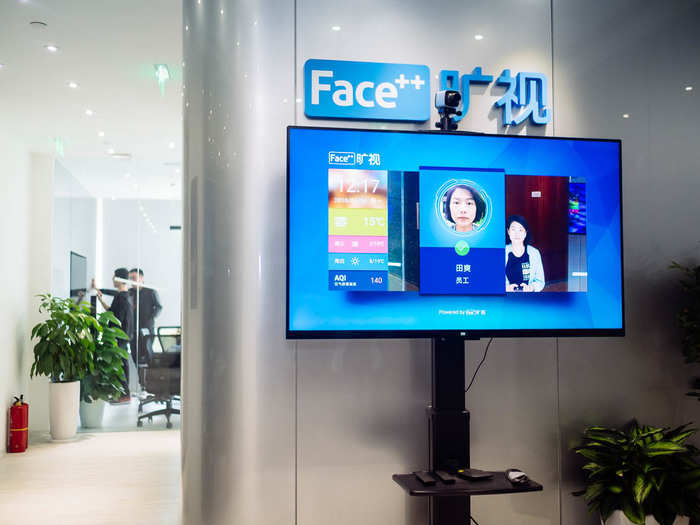
The system can handle multiple faces at once. As employees returned from lunch, each of their faces popped up on the screen. Currently, Face++ is being used in a number of industries in China, according to Xie Yinan, Megvii's vice president. One of the biggest is for private and commercial real estate to manage who is and isn't supposed to be in a particular place.

When I arrived at Megvii's offices, I scanned my face into their system. While getting into an office without a badge is cool, Xie thinks that is only the beginning. Using Face++ for office entry creates a smart system where employers can compile data on their employees — how long they stay at work, what hours they tend to work, etc. Doing so, he said, could allow employers to accurately measure employees who prefer flexible working schedules.

After I was in the system, I decided to give it a try. As soon as I got close to the door, my face popped up on the screen and the door opened. Face++ analyzes 106 data points on the face to determine someone's identity.
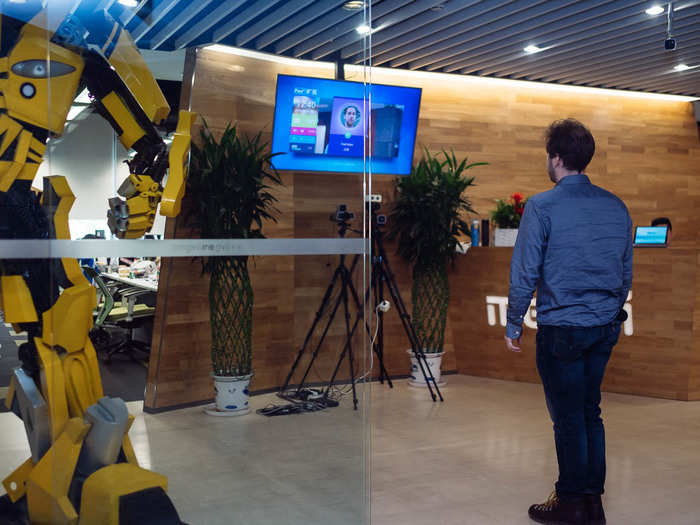
While Face++ is the technology underlying most of Megvii's efforts, they have a number of applications tailored for different uses. Already, some train stations in Beijing match passengers' faces with their national IDs to verify their train tickets.
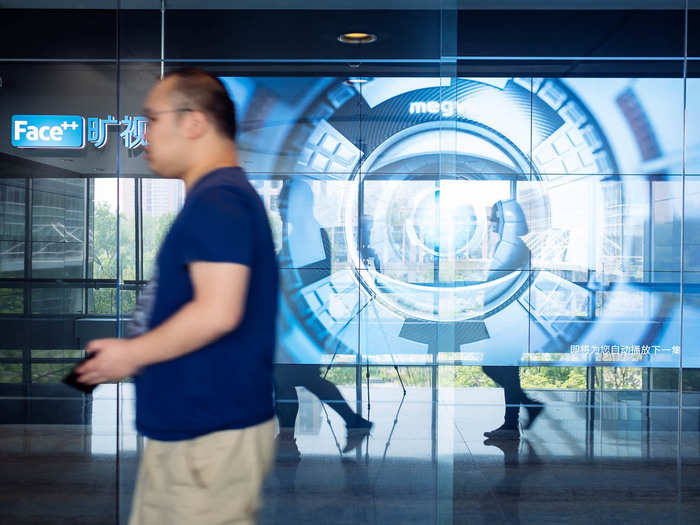
In a showroom in Megvii's headquarters, a highlight reel shows Face++'s many capabilities. Face++'s open platform, which allows anyone to develop apps using its algorithm, is already the largest facial recognition platform in the world, with 300,000 developers from 150 countries on it. Megvii is counting on that popularity to make its system the best in the world. The more data that goes into an AI, the better it becomes.
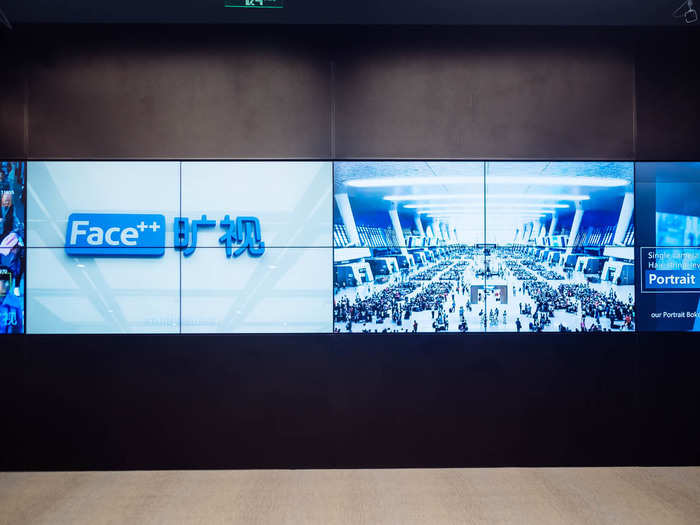
The buzziest and, for many, most terrifying use of Face++ has been by Chinese police. China already has 170 million security cameras in use for its so-called "SkyNet" system, with 400 million more on the way. Face++ is already being used as part of that system. One of Megvii's biggest investors is China's state venture capital fund.
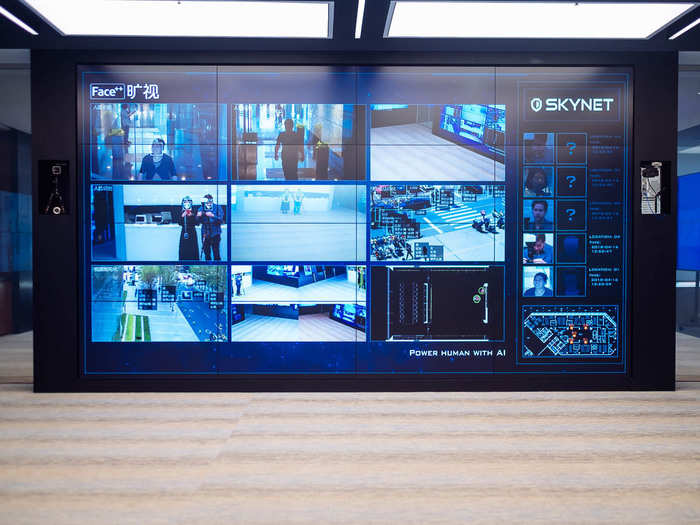
Source: CB Insights, TechCrunch, IDG
A number of police departments in China are currently using Face++ to track down criminals. In December, China demonstrated its sophisticated "Skynet" system by having it track down a BBC reporter in just 7 minutes.
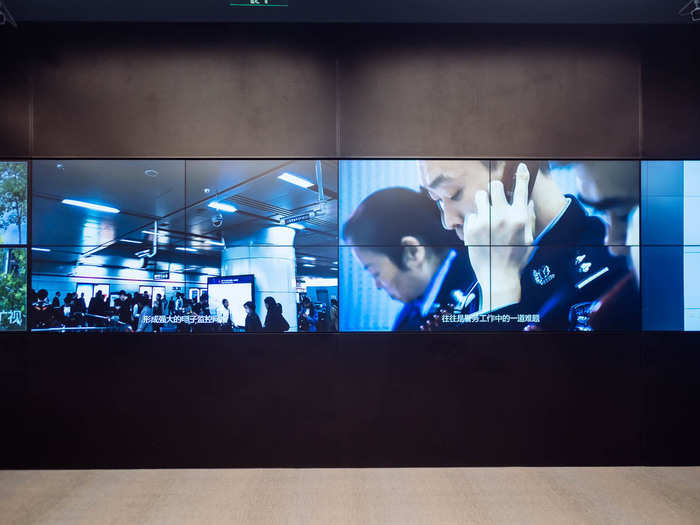
Source: TechCrunch
But, according to Xie, the police's facial recognition capabilities are not as far along as many believe. Police systems powered by Face++ can't run 24/7 and can't track down anyone — it would be too much data for a server to crunch. While it can pick a criminal out of a crowd with solid accuracy, a local server would have to be uploaded with that criminal's face scan prior so that it would know to scan for it. And no server can handle having more than, say, 1000 faces on it at time to look for.
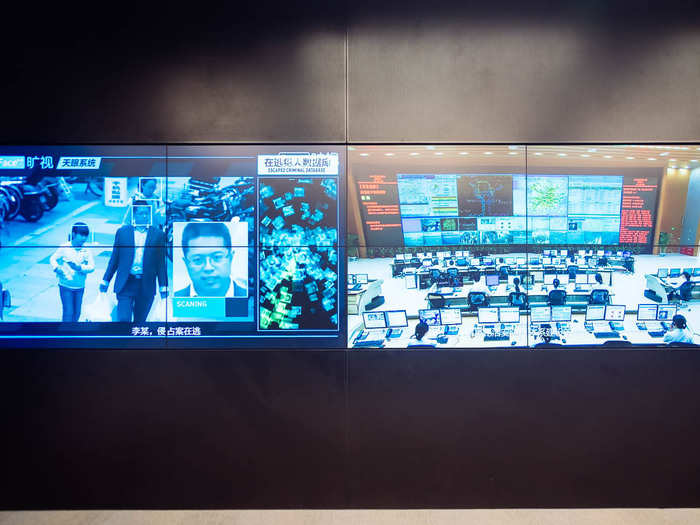
If the government, or any client, tried to use Face++ pervasively or indiscriminately, Xie said that he is confident that that the system would fail. There simply isn’t enough computing power available to support a facial recognition system that isn’t targeted. Of course, that could change as the technology matures.
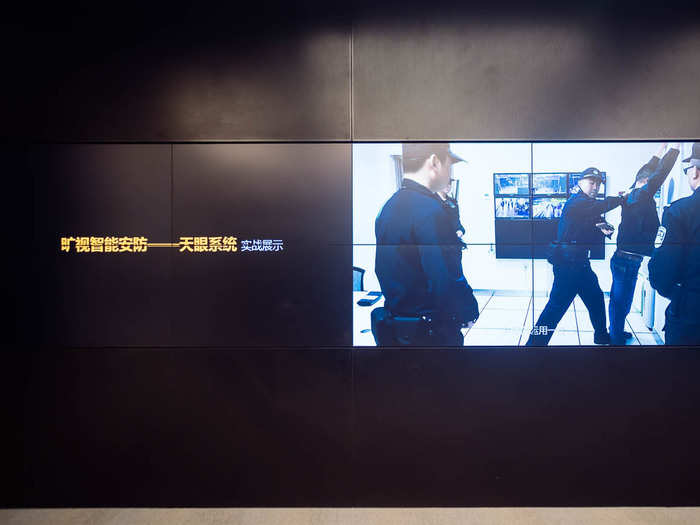
When I asked Xie about the potential for overreach by the government, he seemed unconcerned, saying its up to the government to write the legal framework for how police should use the system. "We don’t have access to the data. What we do is sell them a server [loaded with Face++]. That’s all,” he said.
![When I asked Xie about the potential for overreach by the government, he seemed unconcerned, saying its up to the government to write the legal framework for how police should use the system. "We don’t have access to the data. What we do is sell them a server [loaded with Face++]. That’s all,” he said.](https://staticbiassets.in/thumb/msid-64906393,width-700,height-525,imgsize-216393/when-i-asked-xie-about-the-potential-for-overreach-by-the-government-he-seemed-unconcerned-saying-its-up-to-the-government-to-write-the-legal-framework-for-how-police-should-use-the-system-we-dont-have-access-to-the-data-what-we-do-is-sell-them-a-server-loaded-with-face-thats-all-he-said-.jpg)
That's likely of little comfort to human rights observers of China, who have warned repeatedly of an authoritarian China super-powered by unfettered technology. Already, Chinese state media has boasted of police successes from facial recognition systems.
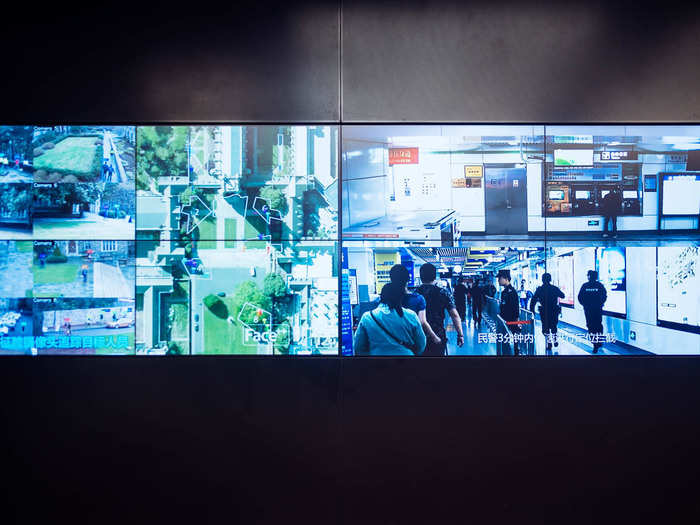
Source: China Daily
For now, Xie is more interested in the possible business applications. Xie sees Face++-powered cameras being used to make retail stores more profitable by analyzing foot traffic to determine a store's busiest times, what parts of the store draw the most interest, what kinds of people visit the store, and who buys what. Brands, he said, could also use Face++ to help customer service recognize rewards members and provide extra attention.

It's likely Face++'s retail and payment applications that have led Alibaba and its subsidiary Ant Financial to invest in Megvii and other similar companies. Ant Financial is already using Face++ to power Alipay's "Smile to Pay" feature at KPro, a KFC concept store in Hangzhou. Alibaba also uses facial recognition payment at some of its high-end Hema Xiansheng supermarkets.

Source: Business Insider, TechCrunch
The broader vision for Megvii, according to Xie, is to be the artificial intelligence that powers China's smart cities. Face++ is integrated into Alibaba's City Brain platform, which is already deployed in six local governments in China. The platform analyzes a city's CCTV network to optimize traffic flows and identify incidents that require police or medical responses. Alibaba claims that the system has improved traffic speed by 15-20% in Hangzhou.

Source: AbacusNews
Another way that Face++ is being used is for real name authentication on the internet. Last year, China began requiring platforms to verify user's identities before allowing them to post on social media or blogs. Face++ is being deployed by many platforms to comply. As sharing services like bicycle-share app Mobike and others become increasingly popular in China, it's likely that authentication will be required for those apps as well.
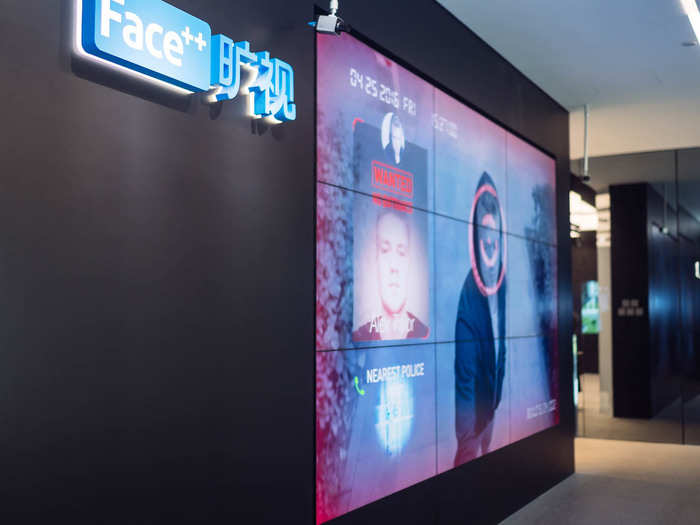
Source: China Digital Times
While the Chinese government has yet to do so, it's possible Face++ could be used to link logins together to create one unified ID. Such an ID would be a boon to China's efforts to build its so-called "social credit system." Some, like author Murong Xuecun, have suggested that the goal of such a system would be bring all of Chinese society against those deemed "untrustworthy."

Source: Foreign Policy
Xie suggested that the aims of real-name authentication are more benign. As more citizens use services like ride-hailing app Didi Chuxing and other sharing services, its important that users on both sides can be tracked down if there is a disagreement or a legal issue.
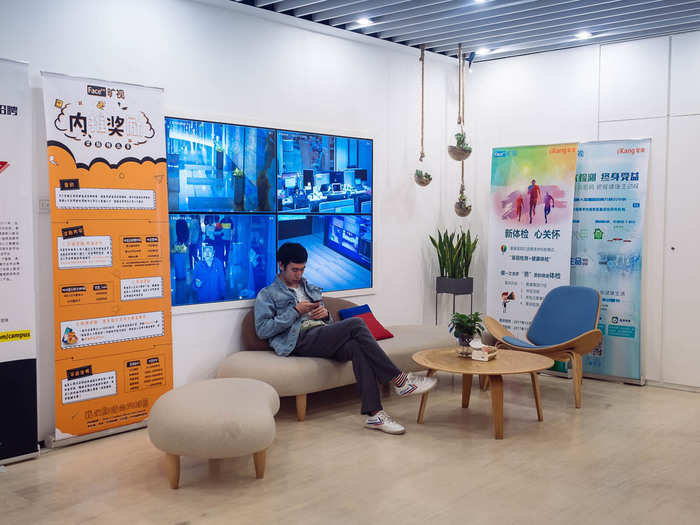
One of the biggest questions for Megvii is whether it will be able to draw the interest of non-Chinese corporations, given the company's affiliation with the Chinese government. Xie said that he believes it will be a non-issue if Face++ and Megvii's technology is top of the line.
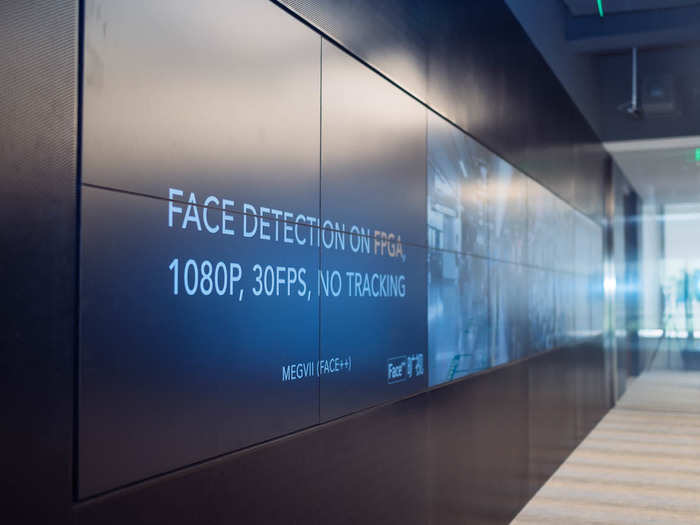
On that point, Face++ may have some work to do if it intends to be used outside Asia. AIs are only as good as the data that goes in them. Due to its dataset, Face++ is far more accurate at recognizing Asian faces than those of Caucasians or darker-skinned people. The platform had a 35% error rate when asked to analyze darker female faces.

Source: Wired
As the US debates the use of facial recognition platforms, one thing is clear in China: the technology is here and it's only getting more accurate. Megvii is far from the only Chinese AI startup putting its tech into the real world.

Popular Right Now
Popular Keywords
Advertisement